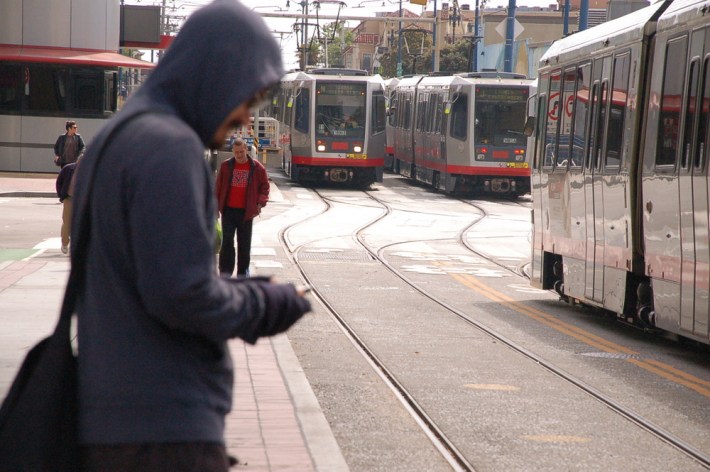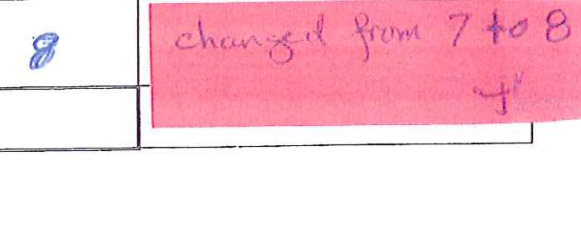As Muni seeks its next-generation fleet of light-rail vehicles to serve the metro system, the manufacturer of its current, notoriously unreliable train cars has been barred from competing for a new contract. Italy-based AnsaldoBreda, which produced the LRVs that Muni riders use today, was the only one of four prospective manufacturers which didn't meet the new criteria set by the SF Municipal Transportation Agency.
Breda is protesting the disqualification with an appeal claiming that it was rated unfairly, according to a memo signed by company officials and former Mayor Willie Brown [PDF], who is apparently lobbying for Breda. Tomorrow, the SFMTA Board of Directors is expected to decide whether or not Breda will be put on the list of companies invited to make the agency an offer. SFMTA Director Ed Reiskin has issued a memo recommending that the board reject the appeal.
The dispute comes at a time when the SFMTA is looking to replace its aging rail fleet of 151 train cars, the "useful life" of which is expected to end in 2021, with an even larger fleet of up to 260 cars that will be needed to serve the Central Subway when it opens in 2019. Since the Breda trains went into operation in 1996, they've continued to plague Muni with a host of mechanical issues and design flaws.
"These problems ... have profound consequences for daily experiences of Muni riders," said Supervisor Scott Wiener at a committee hearing today. "The subway is unreliable and all too frequently melts down. Rush hours are ruined, economic activity is reduced, frustration levels among riders are high, significant gaps in service are all too common. It is a completely unacceptable situation."
"We need to make sure that as we migrate to the next generation... that we are getting light-rail vehicles that meet the needs of San Francisco."
The list of problems with the Breda LRVs include frequent malfunctions with its doors and mechanically-raised steps, as well as intake vents placed on the bottom of the trains, where they frequently get clogged by debris and cause costly disruptions to the vehicles' propulsion systems. Those vents are normally placed on the top or sides of vehicles, according to Muni's director of transit, John Haley.
The on-time performance of Muni's metro system is about 50 percent. Haley said 70 percent of the delays are attributable to mechanical failures, and 67 percent of those are due to the peculiar shortcomings of Breda LRVs described above. Only 114 of the system's 151 cars are in use on an average day, with most others in need of repair.
Breda trains are also unusually wide, which Haley said puts stress on cables when trains make tight turns, while the excessive weight of the vehicles puts extra stress on rails and causes notorious levels of noise and vibration when running on city streets.
The Breda train cars also don't de-couple very well, Haley said, which hinders Muni managers' ability to add or subtract car capacity where needed and to run three-car trains. Ron Austin, vice president of Muni Transport Workers Union 250-A, said that even though the previous fleet of Boeing cars were "lemons," the "one good thing about them was that you could couple and de-couple easily so we could have [multiple cars] in the subway. We lost that ability with the Breda car."
In the SFMTA's assessment of Breda for the new contract, the company attained a total score of 49, just under the minimum of 50 needed to be in the final running, while the other three scored between 60 and 79. In the company's appeal, one of Breda's main arguments was that one of the scores it received from a member of the panel in the category of "production schedule solutions" appeared to have changed their number from an "8" to a "9," and that this went inaccurately recorded. In response, the SFMTA's memo included a statement from the panelist clarifying that it was actually changed it from a "7" to an "8."
"I find that as to all matters that AB raises in its protest and appeal, the selection committee’s conclusions were reasonable," Reiskin wrote in the memo.
The SFMTA Board is scheduled to vote on Breda's eligibility for the contract tomorrow.
Wondering why Muni purchased the Breda cars in the first place? Check out this 1998 SF Weekly article exposing the shady deal.






